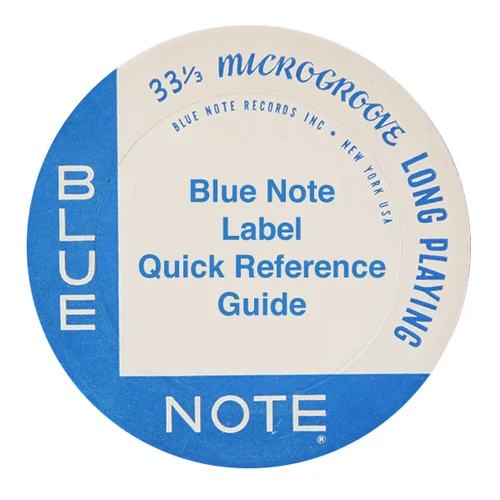A New Thing: Doug Carn - "Infant Eyes"
/Doug Carn • Infant Eyes • 1971 • Black Jazz Records
Recorded 1970(?) in Los Angeles, CA
The Tracks:
A1. Welcome
A2. Little B's Poem
A3. Moon Child
A4. Infant Eyes
B1. Passion Dance
B2. Acknowledgement
B3. Peace
The Players:
Doug Carn - Piano, Electric Piano, Organ
Jean Carn - Vocals
George Harper - Tenor Sax, Flute
Bob Frazier - Trumpet, Flugelhorn
Al Hall, Jr. - Trombone, Valve Trombone
Henry Franklin - Bass
Michael Carvin - Drums
The Vinyl:
An original pressing with the red/orange "Compatible Stereo/Quadrophonic" label, the preferred version over the regular stereo pressings released at the same time, which are prime examples of that thin and flimsy vinyl that dominated in the 1970s. While this pressing doesn't have any sort of thickness to write home about, it does feel much more substantial than other non-quadrophonic Black Jazz LPs I've come across over the years. I scored it for $51, a hefty sum to be sure, but well worth it in the VG+/VG+ condition of a rarity like this, especially when it's a record that's been near the top of my wishlist for some time now.
And if you're lucky enough to come across one of these copies, don't be scared off by the quadrophonic designation: it sounds absolutely fabulous on a stereo system. I don't know much about the quad systems that were pushed upon audiophiles during the 1970s, other than you needed special equipment for playback and it was an early version of what we now know as "4.0 Surround Sound." I also know that the systems did not work very well and for the most part were considered commercial and technological failures. There are some rock and roll LPs that were produced for the quadrophonic market that contained different mixes than their stereo counterparts, but whether they are superior is up for debate.
As for the Black Jazz label, it was formed in the early 1970s by Gene Russell and Dick Schory, two jazz cats from Oakland, California, who wanted to start a jazz label as a home to a more political and spiritual form of jazz music. According to Wikipedia, the label was distributed by the country & western label Ovation, also started by Schory, and Black Jazz was the first jazz label founded by an African American since Sunshine Records way back in 1921. The label released twenty albums between 1971 and 1975 by a wide variety of African American jazz musicians and singers, with the most sought after albums coming from Doug Carn, Walter Bishop, Jr. and Henry Franklin. The iconic black and white covers were identical on both sides (a design that was used for all the albums released on the label), an idea that Russell though highly enough of that he actually had the design copyrighted.
After the label closed up shop in 1975 the music slowly faded from public view (not that it could ever have been called a mainstream label by any stretch) until the mid-1980s when the master tapes were purchased and the LPs slowly started making their way onto compact disc. Even today, though, the music can be hard to acquire, accounting for the higher prices associated with many of the vintage vinyl pressings that are out there.
The Record:
Infant Eyes takes the listener on one wild ride, with Doug Carn penning lyrics to some modern jazz classics, which his wife Jean then performed masterfully, with the two most well known of these coming in the form of Bobby Hutcherson's "Little B's Poem" and Wayne Shorter's "Infant Eyes." There is also a very moving lyrical version of Coltrane's "Acknowledgement," that lives up to the depth of the original version. In addition to the vocal tunes (which also feature some nice soloing by the sextet), the talented group also adds in two instrumental tracks in Carn's original "Moon Dance" and a fiery cover of McCoy Tyner's "Passion Dance," a smart move that keeps the record from being strictly a vocal endeavor that might not keep the listener's attention throughout.
It's pretty clear where the heads of these jazz musicians was during this time, with the musical choices skewing heavily towards the avant garde and post bop stylings of the previous decade. I often see Infant Eyes cited as a soul jazz masterpiece, but I think of it more as a deeply spiritual album, an exploration of what jazz music could be in the early 1970s, when so many boundaries had been tossed away and the musicians were feeling empowered to follow their own unique visions. And make no mistake, unique is the perfect description of Infant Eyes: there wasn't an album in jazz anything like this before it was released, and except for the three albums Doug and Jean Carn made for Black Jazz in the following few years, there wouldn't be anything quite like it again. In fact, Carn has said that he shopped the album to all the major jazz labels of the day, but none had any interest in putting it out for a mass audience. Apparently he had all but given up hope before Gene Russell showed up at his door asking if he would be interested in releasing it on Black Jazz, and the rest, as they say, is musical history.
Infant Eyes may be a jazz statement purely of it's place and time, but it has held up remarkably well over the years, and actually may be better understood in today's musical world where disparate musical styles are constantly being mixed and matched together in popular music. While this is not an album for every jazz listener, if you are willing and able to open your ears and mind to new sounds and ideas, your jazz world will be all the more richer for it.
The Selections:












